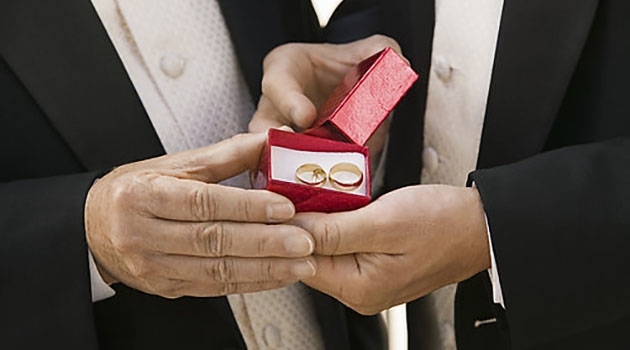Married in Sweden – but single in another EU Member State?
A same-sex marriage entered into in one EU Member State may not be recognised in another. The argument is often that such a marriage is too different from the country’s own laws and policies. In a new dissertation on private international law, Laima Vaige analyses how this application of the law compares with the European Convention on Human Rights and EU law.
While in many EU Member States, two people of the same sex are permitted to marry on the same terms as a man and women, this is not the case in Poland, Latvia, Lithuania or Estonia, although the latter does allow same-sex couples to register their partnerships. The laws and policies of these states are studied by Laima Vaige in her doctoral dissertation. She also looks at the cultural reasons behind these laws and policies.
Legal illusion
Under the Charter of Fundamental Rights of the European Union, all EU citizens enjoy the right to freedom of movement to move from one Member State to another. So, what happens if a married same-sex couple move to a country where same-sex couples are not permitted to marry?
Each Member State retains the autonomy to decide which country’s laws apply to the recognition of a marriage’s validity. In Estonia, the rules refer to the law of the state in which the spouses had a habitual residence at the time of marriage. In Latvia and Poland, the rules refer to the law of the state in which the spouses are citizens. Meanwhile, in Lithuania, the rules refer to the law of the country in which the marriage was celebrated.
“Freedom of movement becomes a legal illusion when marriages entered into in one EU Member State are not recognised in another. This risks breaking up families. Sexual orientation should not be the main decisive factor in determining validity of marriages,” says Laima Vaige, doctoral student of private international law at Uppsala University.
Protecting the legal system of their own
Countries that refuse to recognise same-sex marriages entered into in another country often justify their reservations in terms of public policy, or so-called ordre public. It is a safeguard for protecting the legal system and values of their own country from overly “alien” foreign law or marital status acquired abroad.
law at Uppsala University. Photo: David Naylor
“It is one thing to request to marry a same-sex partner in a country such as Poland. It is an entirely different situation when it comes to recognising already existing marriages. Same-sex marriages entered into lawfully in other EU Member States should be considered valid in the Baltic States and Poland,” Laima contends.
Laima Vaige argues that refusing to apply foreign law solely on the grounds of the special value of heterosexual marriage is incompatible with EU law and the European Convention on Human Rights. This is backed up by case law at both the European Court of Human Rights and the Court of Justice of the European Union. A more inclusive interpretation is even supported in the legal literature in the countries analysed and, to a certain extent, in the application of the law by public authorities in these countries.
Europeanisation has also had some impact on the possibilities for Member States to refuse to recognise same-sex relationships formalised in another Member State. According to Laima Vaige, this impact should be clearer in the future.
Homophobia influences policies
In her dissertation, Laima Vaige also analyses the countries’ cultural and religious conditions, their understanding of national identity and modern politics, all of which create an emotional context in which the law is applied. She believes that homophobia influences policies and it often plays a decisive role in refusal to recognise valid marriages and registered partnerships.
“It is somewhat odd that the legal literature in the countries I have analysed recommends that existing polygamous marriages should be recognised, while existing same-sex marriages are deemed an impossibility. If same-sex marriage is not recognised, one must ask what the problem actually is. I don’t believe that it is a matter of following the law, but rather, following heteronormative prejudices. According to the European Convention and EU law, heteronormativity should not be acceptable as a sole defence for the refusal to recognize a same-sex marriage,” says Laima Vaige.
Laima Vaige was born in Lithuania and had lived in all of the Baltic States before arriving in Sweden in 2016.
Linda Koffmar
Publication:
Vaige, Laima (2021) Cross-Border Recognition of Formalized Same-Sex Relationships in Europe: The Role of Ordre Public in the Baltic States and Poland, Uppsala: Department of Law, Uppsala University

